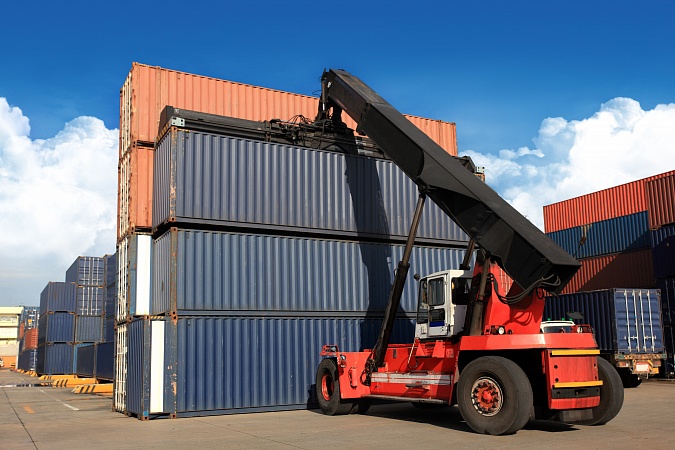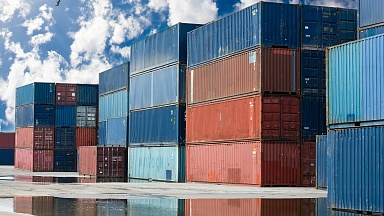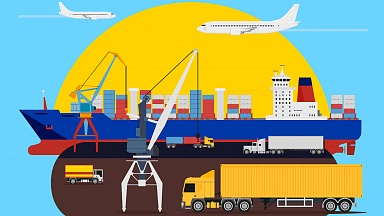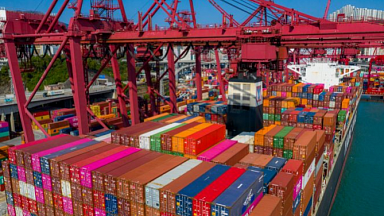Shipping lines are failing to provide Europe’s shippers with enough information about service disruptions and port rotations following the Suez Canal closure, according to Jordi Espin, strategic relations manager at the European Shippers’ Council.
Europe’s container terminals have been operating at subdued levels this week due to the Suez closure. However, vessels delayed in Suez queues or re-routed around the Cape of Good Hope are expected to arrive en masse over the next week. Congestion, equipment shortages, blank sailings and void port calls are expected to disrupt services for a number of weeks.
Espin told Lloyd’s Loading List that the information provided by carriers was not detailed enough to allow logistics managers to plan around the disruption.
«During the closure and since we’ve had information from lines saying our cargo will be delayed — but I’m sorry, we already know this,» he said. «What about the current blank sailings programme being implemented? What about Jebel Ali being skipped on the way to Asia?
«We need more information. Which containers have been re-routed via the Cape or elsewhere? How long do they estimate the domino effect will take place for? How are they going to adjust future sailing loops? This is what we’re not getting told.»
Espin called Suez a turning point in the liner-shipper relationship. «Unless shipping lines deliver an important message to the maritime community on how the trade will be managed from now on, the trust chain between shippers and carriers will be broken,» he added.
«We guess there’s going to be a lot of disruption and port congestion in the coming weeks. What we don’t know is how it’s going to be managed. Reliable and official information channels from shipping lines do not exist and this lack of initiative feeds false operational expectations.»
Expected delays
As reported in Lloyd’s Loading List, carriers are expecting congestion at Europe to build in the coming weeks.
«Especially in North Europe, the congestion issues will be quite significant in the next four weeks,» said Rolf Habben Jansen, Chief Executive Officer of Hapag-Lloyd. «When we look at cases like Rotterdam or the UK, we will be looking at alternatives to make sure we don’t lose any time.
«We do expect that the most services will miss one or two sailings, which will impact the available capacity in Q2.»
Loss of Asia-Europe capacity
Espin said shippers were expecting a loss of capacity of around 20-30% departing Europe in April and May due to the disruption of vessel arrivals, but he urged carriers to «prove they are customer-centred» and do their utmost to avoid so many blanked sailings.
«Now vessels are going to arrive all in one go. They will have to go back to Asia. If there’s not a smart rescheduling of loops, then we are going to face low availability departures from Europe,» he highlighted.
«If they don’t do that, they’ll be showing they’re only interested in profits, not customers.»
Shippers fearful of serious disruptions
He said shippers were fearful that supply chains will face serious disruptions with so many components and products coming from Asia.
«They know the product is delayed, so if they can identify how long the delay will be, then they can look for alternatives to overcome the problem until their container arrives,» he added. «The unique point now is to service shippers: to know when and where the container will be dropped and collected for departure, and that all these disruptions will not be transformed only into costs, surcharges and bills.
«Now is the time for real transparency and trustful information, not just for information brochures saying that the vessel is just late or that departing cargo will not be accepted until four weeks later. Lines are integrating, so use this capability to help manage this, not just to make money.»
Maersk advice
Maersk advised customers yesterday that Suez Canal sailings were now starting to normalise after the carrier saw some 50 vessels delayed for a week due to the Suez blockage. «While we still expect the canal closure to impact schedules and port calls well into May, as vessels are brought back on their fixed schedules, our people are working relentlessly with all the data at hand to alleviate the knock-on effects of the Suez blockage,» it said.
«While the impact is still significant in certain areas, we have been successful with a number of mitigation efforts. We are therefore very pleased to be able to open for short-term bookings including Spot bookings again, starting already this week for some of the affected trades.»
Europe demand spikes
The Suez Canal closure and the supply chain difficulties it will cause come just as demand from Europe’s manufacturing sector for parts and components peaks. The March IHS Markit Eurozone Manufacturing PMI recorded operating conditions at their most intense in the 24 years of data collection by the analyst.
«After accounting for seasonal factors, the headline PMI surged to 62.5, up from February’s 57.9 and indicative of a considerable strengthening of sector performance,» reported IHS Markit. «The index has now registered above the 50.0 ‘no change’ mark that separates growth from contraction for nine months in succession.»
Growth was broad-based across the region, with Germany and the Netherlands leading the way. Both nations recorded their highest ever PMI levels in March.
However, the further strengthening of trade, orders and production placed further strain in March on already stretched supply chains, with average lead times for the delivery of inputs lengthened at an «unprecedented rate» as challenges in sourcing inputs due to product shortages, stronger global demand and ongoing logistical challenges linked to COVID-19.
Chris Williamson, Chief Business Economist at IHS Markit said that while Eurozone manufacturing was «booming», the «picture is blighted» by record supply chain disruptions which will «likely be exacerbated further by delays arising from the Suez Canal blockage».



